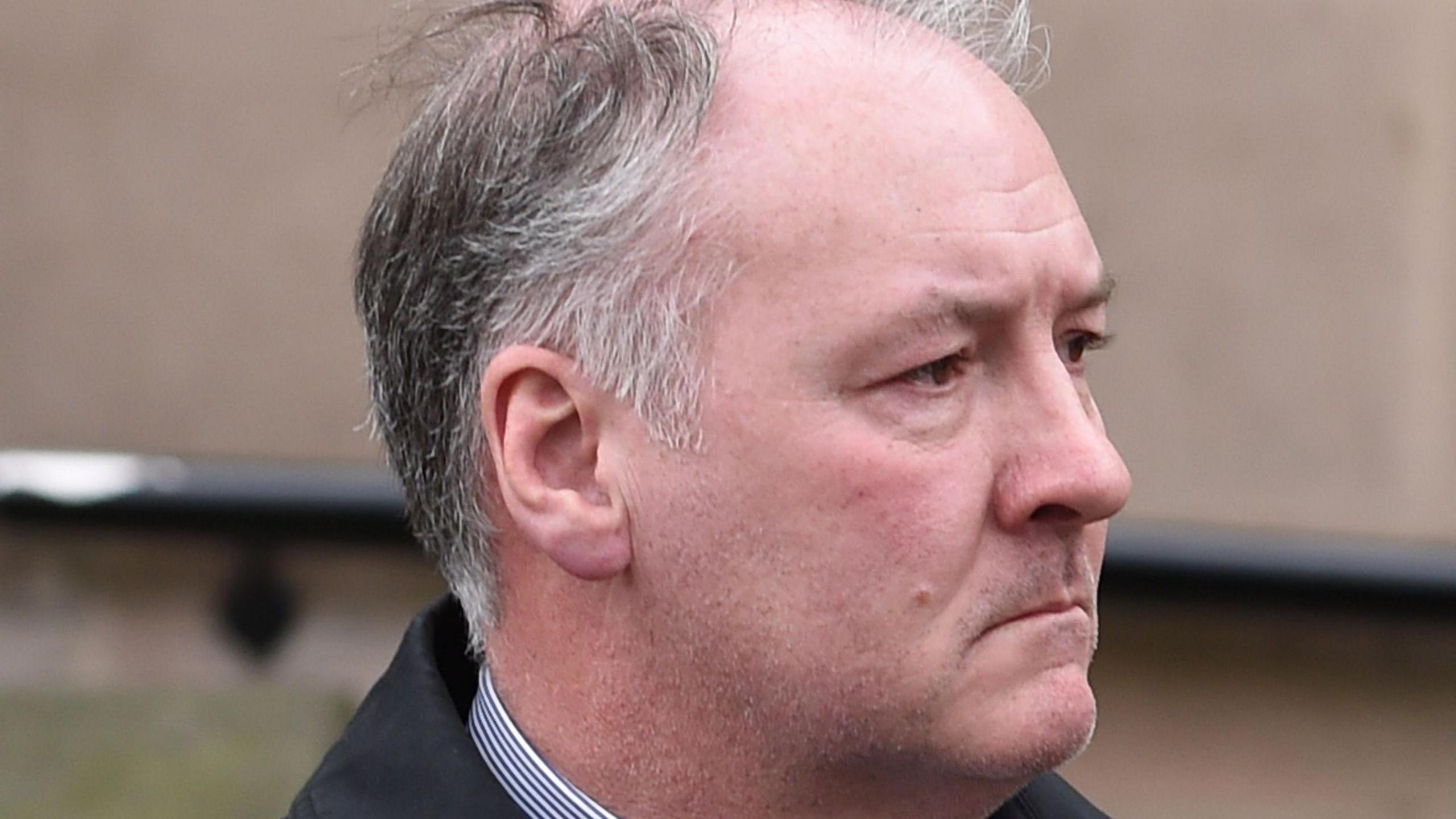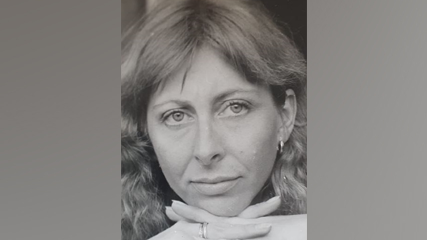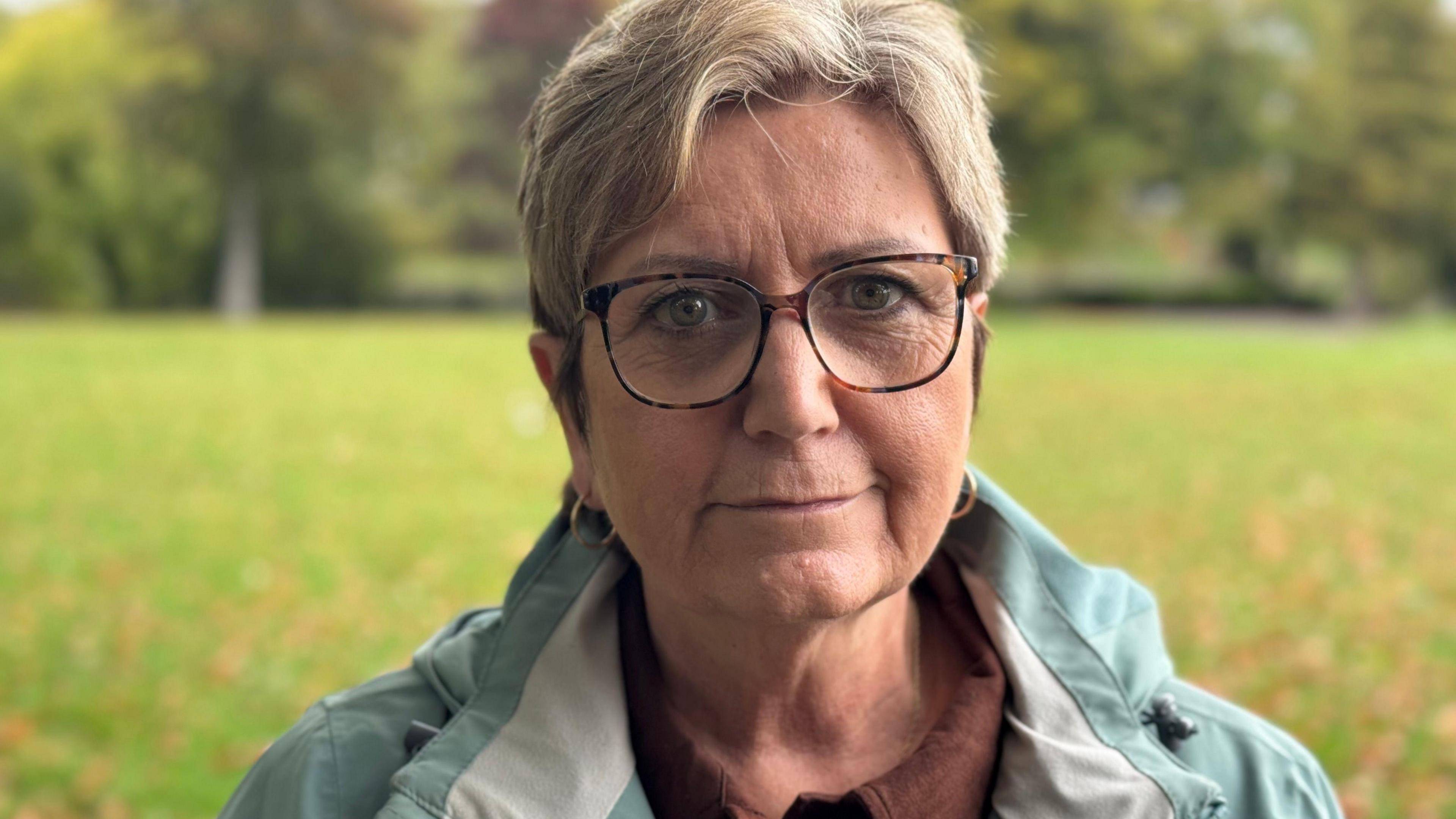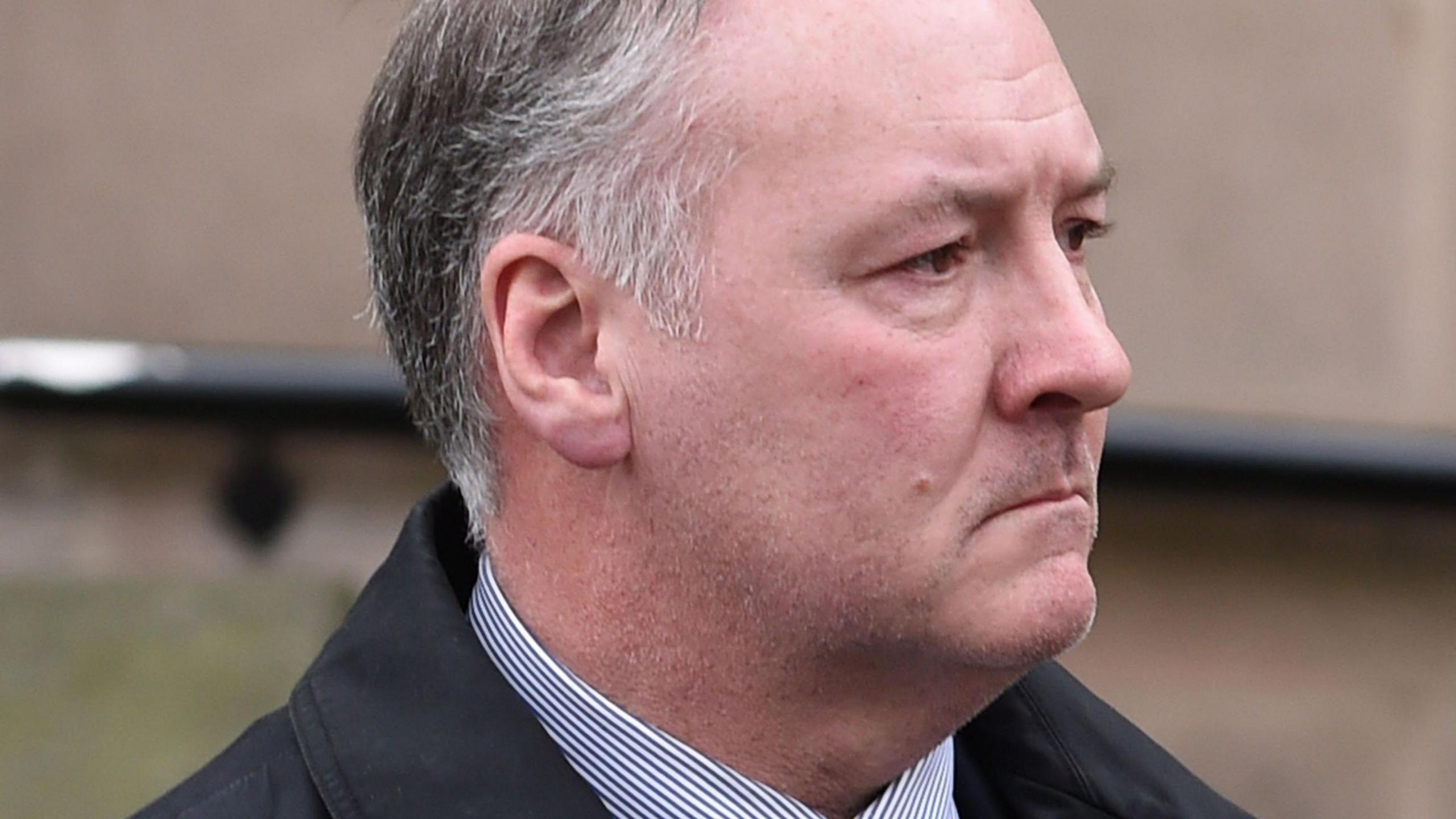'Probable delay led to Paterson patient's death'

Jenny Lloyd-Faux was not diagnosed with cancer on her first visit to Paterson's clinic in 2000
- Published
A 40-week delay in jailed surgeon Ian Paterson treating a teacher's breast cancer contributed to her death, an inquest has heard.
Jenny Lloyd-Faux was originally referred by her GP to Paterson's breast clinic in October 2000.
However he did not order a biopsy, and she was told breast changes were benign. She was diagnosed with breast cancer after she returned to see him in September the following year. She died in 2009, aged 62.
Paterson was convicted of wounding patients with botched and unnecessary operations in 2017 and jailed for 20 years. The inquests at Birmingham Coroner's Court are the first time the deaths of former patients have been examined.
The former surgeon, who was employed by Heart of England NHS Foundation Trust and practised privately at Spire Parkway and Spire Little Aston.
Ian Fentiman, emeritus professor of surgical oncology at Kings College London, told Birmingham Coroner's Court he believed the cancer would have been detected by a biopsy during the patient's first visit.

Breast surgeon Ian Paterson was jailed for 20 years in 2017 after being convicted of multiple counts of wounding
The court heard Mrs Lloyd-Faux presented with lumpiness and skin dimpling on her right breast when she first saw Paterson.
But following imaging, the radiographer's report described benign breast changes he did not think were due to an underlying cancer.
Questioned over whether Paterson should have requested a biopsy, retired surgeon Prof Fentiman said: "If there was skin dimpling, I think a biopsy should have been taken."
That Mrs Lloyd-Faux was taking hormone replacement therapy (HRT) could have been seen as an explanation for benign changes, he said.
"If she had been post-menopausal and not taking any HRT I think there would certainly have been a reason to say, 'yes we should biopsy this'."
The mother and foster carer was referred to Paterson again the following June, and seen in Solihull. This time, a mammogram, ultrasound and biopsy confirmed cancer.
Paterson performed a mastectomy on her in September 2001, removing two tumours measuring between 50 and 75mm in total, the court heard.

Teacher and foster carer Mrs Lloyd-Faux died aged 62 in 2009 after her cancer spread
Prof Fentiman, formerly of Guy's and St Thomas' Hospital Trust, said his calculations estimated Mrs Lloyd-Faux's tumour measured 48mm in 2000.
"If a biopsy was taken at the area of which she was complaining, I have to say, on the balance of probabilities, the diagnosis would have been made," he said.
In addition, she would have been advised to stop taking HRT, he said, which could have impacted the spread of her oestrogen receptor-positive cancer.
He did not believe her cancer had started to metastasize at that point, and said her worst-case prognosis would have been a 83% chance of surviving ten years.
However by October 2001, he believed her cancer cells had spread.
"It is probable that the delay did contribute to the patient's death," he said.
The delay of just over 40 weeks was calculated by counsel to be the time elapsed between a probable mastectomy date in November 2000 and her eventual surgery.
'Cosmetic appearance'
The inquest heard evidence on Tuesday Mrs Lloyd-Faux's underwent a cleavage-sparing mastectomy, which Paterson denied.
A note from her oncologist in October 2001 described "residual tissue" on the patient's right chest wall. "That's corroboration of the fact this was a cleavage-sparing mastectomy," Prof Fentiman said.
However, he stated he did not think the procedure, where breast tissue is left behind to preserve cosmetic appearance, caused her death.
In a pen portrait on Tuesday, Mrs Lloyd-Faux was described by her daughter as having "a zest for life and an abundance of kindness".
She had radiotherapy following her surgery and took tamoxifen for almost five years, until June 2006, before starting the medicine letrozole, external four months later.
In December of that year cancer was discovered to have spread to her bones and she died in a hospice in April 2009.
She is one of 65 women whose deaths are being investigated to determine whether or not they died an unnatural death as a result of Ian Paterson's care and treatment.
Get in touch
Tell us which stories we should cover in Birmingham and the Black Country
Follow BBC Birmingham on BBC Sounds, Facebook, external, X, external and Instagram, external.
Related topics
- Published21 October

- Published21 October

- Published30 October 2024
